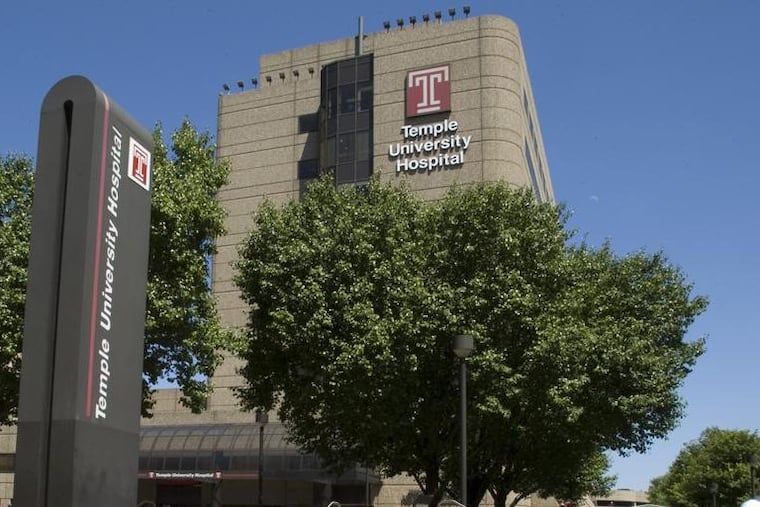Temple University will hire restructuring officer for health system, could sell Fox Chase and Jeanes
Temple University's board of trustees on Wednesday announced that the North Philadelphia institution will hire a chief restructuring officer for its financially beleaguered health system and would consider selling Fox Chase Cancer Center and Jeanes Hospital.

Temple University's board of trustees announced Wednesday that it will hire a chief restructuring officer for its financially beleaguered health system and would consider selling Fox Chase Cancer Center and Jeanes Hospital.
"Temple Health faces significant operational and financial challenges. More must be done to maintain a viable and sustainable health care enterprise in a highly competitive and volatile market," Temple president Richard M. Englert and Temple University Health System chief executive Larry Kaiser said in a letter to the Temple community.
Englert and Kaiser were not available for interviews.
Temple spokesman Ray Betzer said the restructuring officer, who will review operations, had not yet been hired. The university also plans to hire a financial adviser to explore options including potential asset sales. He said no information was available on whether there would be layoffs at the health system, which employs 9,808 people.
As the de facto public hospital for North Philadelphia, Temple bears a heavy load of Medicaid reimbursement, which does not come close to covering a hospital's costs. That makes it extremely difficult for Temple to stay in the black, even though it gets special state aid. That supplemental funding totaled $163 million in the year ended June 30, 2017.
Kaiser, who became the health system's CEO in 2011, pursued a strategy of developing high-end services, such as organ transplants, that bring in more revenue than do the ongoing services to the chronically ill that form the base of operations for Temple. Temple also bought Fox Chase in 2012 for $84 million as part of the effort to add more advanced services.
But it's not clear how much the high-end services at Temple University Hospital add to the bottom line.
In the nine months ended March 31, Temple had an operating loss of $40 million on total revenue of $1.3 billion, compared to $15 million operating on revenue of $1.26 billion the year before.
Meanwhile, Temple has remained — or been left — on the sidelines amid a hospital consolidation wave. In the most recent move affecting Temple's back yard, Thomas Jefferson University in March reached a preliminary deal to acquire Einstein Healthcare Network.
Even if Temple University's board wanted to unload the health system, it would be tough to find a taker, said Dan Grauman, CEO of Veralon, a Philadelphia health-care consulting firm.
"No one is going to buy that hospital," he said. It's an extremely difficult problem for Temple because of the disproportionate share of uninsured and Medicaid patients who rely on Temple, Grauman said.
He suggested a three-prong approach, including the sale of Fox Chase and Jeanes. A second move would be to make tough choices on clinical and research programs as Temple can't do it all, Grauman said. Finally, the city and the state are going to have to step in with more money, he said.
It is not clear how far Temple will go in restructuring its operations.
"We want to assure you that both the university and the health system are committed to ensuring that Temple remains a highly respected academic medical center that serves the region and remains a leading provider of medical care to an underserved community," the letter from Englert and Kaiser said.